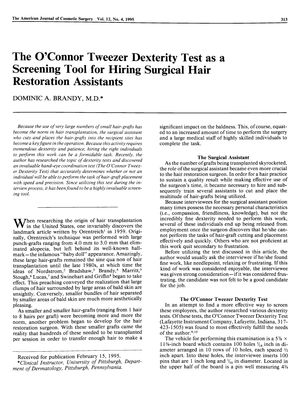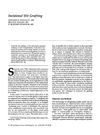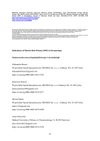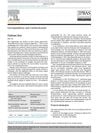The O'Connor Tweezer Dexterity Test as a Screening Tool for Hiring Surgical Hair Restoration Assistants
December 1995
in “
The American Journal of Cosmetic Surgery
”

TLDR The O'Connor Tweezer Dexterity Test effectively screens for skilled surgical hair restoration assistants.
In the 1995 study by Dr. Dominic A. Brandy, the O'Connor Tweezer Dexterity Test was used to screen candidates for the role of surgical hair restoration assistants. The test, which measures hand-eye coordination by timing the placement of pins into holes with tweezers, was found to be an effective tool in the hiring process. Brandy's current staff of 12 assistants had a mean score of 252 seconds and a median of 240 seconds on this test. He suggested that ideal candidates should score around 200 seconds, with 320 seconds being the lower limit of acceptability. The implementation of this test reduced the hiring of individuals with insufficient dexterity and decreased the turnover rate of assistants due to frustration.





